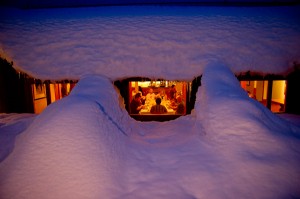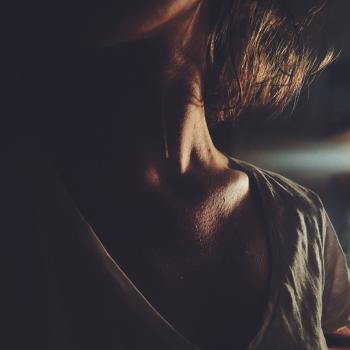 Dedicated to Amy Chevalier Efantis
Dedicated to Amy Chevalier Efantis
Aside from any private celebrations hosted by the Tulane alumni organization or the Louisiana State Society, there was no Mardi Gras in Washington, D.C. Tuesday.
Oh, as with everything else in a city whose official face is all about signaling and little about actual meaning, there are token, presumably resonant gestures. Starting the week before Ash Wednesday, in typically truncated, efficient fashion, some downtown bakeries will put out King Cakes—too dry, not frosted enough, too Puritan, really.
Never mind that the real season for King Cakes stretches back almost two whole months, to Epiphany on January 6. Plus people in a town that worships maximum flexibility at all times have no idea how to react upon discovering that they’re eating the plastic baby.
In this town, celebrations are chiefly an annoyance. Parades are for out-of-towners; the motorcades merely inspire epic traffic. Drinking for most folks around here, it appears to me, is not a joyous, communal affair, but a furtive private release accompanied by Chinese carryout and David Letterman at 11:30 p.m. after the memo has been written, or the Asian markets consulted.
And that is to say nothing of religion itself, amid our bustling naked public square.
But just as the A Beka social studies books from Manchester Academy told me back in 1980, religion has a way of striking into the secular, 24-7 world nonetheless.
This year, snow has become our festival.
Preparations can start days or even a week ahead, once the telltale white asterisks start being sprinkled across the Weather.com forecast grid. “Argh, more snow,” we publicly lament, because any laxity in our enthusiasm for the Mission (whatever it is) could signal a laxity in our commitment to the Mission itself. There’s a big deadline that has to be met by the end of Q1.
Secretly, though, we keep checking back on The Washington Post’s “Capital Weather Gang” web page to see if the models are likely to prove correct, and what the total snowfalls will be. If you have any doubt that I am dead serious about this snow-as-religion thing, then go to “Capital Weather Gang” and see for yourself: Chief meteorologists Jason Samenow and Wes Junker are the high priests, and there is such an active stable of regular commenters that they often refer to one another by their Internet web handles.
And what do these hundreds of commenters do other than conduct various kinds of midrash about how much precipitation we are likely to get?
Once we’re closer to The Event, the anticipation starts to build—almost as much as before Orthodox Pascha or Eid al-Fitr. The school systems are only the initial guide, since—at least if you listen to your neighbors from Rochester or Presque Isle—they will close for practically anything these days. The Federal Government is the big kahuna, since almost all other offices follow their practice, and we have sat in bed at night hunched over our glowing phones at 10 or 11 p.m., waiting to see whether the Federal Government has “called it.”
After that, we can slide down under the covers and fall into a sleepy reverie as the white shimmer from the falling snow outside illumines our bedroom walls. We can turn off the alarm clock. And in the morning we can pad around the house in our nightclothes, savor the coffee or hot cocoa, lie back on the sofa and read the article in The New Yorker we’ve been meaning to read for months, and have kept the copy for just this eventuality.
Neighbors brim with excitement on Facebook: “Sledding on Hospital Hill RIGHT NOW. Who’s in? J” Children either bundle up and cut loose outside wildly, or flop in their nightclothes in front of the television set. Everything starts out joyously, and just like at Christmas, the day can end in tears and family recriminations.
This is a faith in which there are saints: Nurses, police officers, the men (and they generally are) who drive the plows and salt trucks. And even my essential-personnel husband, who goes to work very early in the morning for the media—otherwise, the snowstorm might be perfect for a bit of conjugal bliss.
This faith has its Pharisees, as well: The people who will fight their way downtown to the office no matter what, and who just don’t understand why someone wouldn’t try to drive in from Fauquier County, Virginia, or Frederick, Maryland—roughly an hour outside town. Actually, what they don’t understand is why people persist in living in those places in the first place. Or why people who have children have not conveniently secured means of having always-available child care in the event of the unexpected.
Because the work just doesn’t stop. However fashionable it may be among progressives to decry the celibate religious, it is the un-partnered, and un-parenting among us who have become eunuchs for the Lord, logging sixteen-hour days, blind to the sky and the soft white crystals falling, just barely audible, on the branches.
This is a faith that even has its monks.
But who is the Pharoah who has ordered us to make bricks endlessly, without a perceptible end?
There’s a story about Abba Anthony I once was told: A man passed by Abba Anthony and his monks, and was distressed that the community was relaxing and laughing, not about the business of prayer. Abba Anthony told the man to take his archery bow, and to stretch it tighter. And tighter. And tighter.
The man protested: Stretch it any tighter and the bow would break.
Abba Anthony responded: So also would his monks, if they were not given time to rest and make merry.
Let us observe the festival. I just have to finish this darned conference call first.
A native of Yazoo City, Mississippi, Caroline Langston is a convert to the Eastern Orthodox Church. She is a widely published writer and essayist, a winner of the Pushcart Prize, and a commentator for NPR’s “All Things Considered.”










